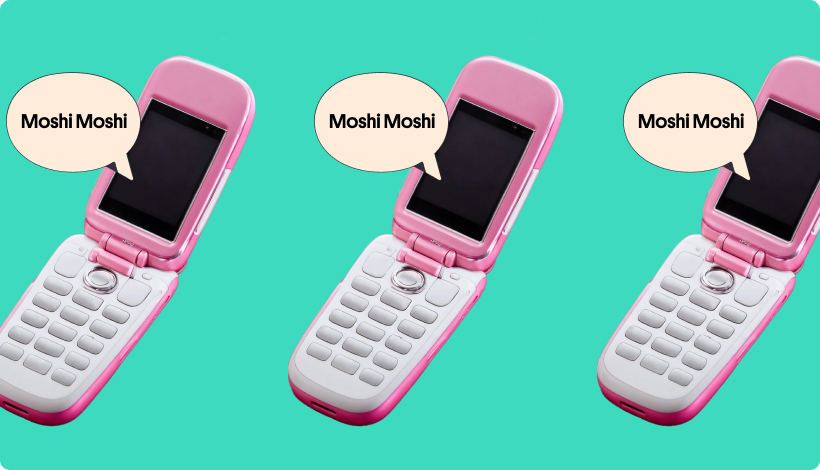
Reading and writing Japanese is a huge challenge – but learning punctuation can make it easier. Learn all about Japanese punctuation and how to use it.
Advance in your career or explore the world with personalized 1-on-1 Japanese courses taught by the best online tutors.

Reading and writing Japanese is a huge challenge – but learning punctuation can make it easier. Learn all about Japanese punctuation and how to use it.

Moshi moshi is a useful telephone phrase for casual conversations. But it isn’t suitable for every situation. Learn all about when you should and shouldn’t use it, with some alternative phrases.

Watching anime is a legitimate – and fun – way to learn Japanese. We’ve listed the best anime for people who want to learn Japanese.


Speaks Japanese (Native)
per lesson
4 reviews
にほんごで はなそう! Nihongo de hanasou! Lets talk in Japanese! – Hi there, Japanese Literature and Linguistics were my majors in a University in Tokyo, and then I took the certification of teaching Japanese. Through I have learned English and German, and also through the experiences of living in the different countries, I know how hard and interesting to learn foreign languages is.


Speaks Russian (Native)
per lesson
12 reviews
Graduate Teacher with 10 years of experience – English, Ukrainian, Japanese – I like languages and I like to teach them, to reveal the beauty and uniqueness of each of them. Language - is the living soul of the people. I am teaching foreign languages more than 10 years, I am professional. Russian and Ukrainian are my native languages.


Speaks Japanese (Native)
per lesson
86 reviews
Let's talk a lot♪ Fun and efficient private lesson for women♪ – ★Only tutor female students at the moment★ Experienced online Japanese teacher (been teaching full time since 2017) Finished the 420h Japanese teaching course Hi all :) Thank you for visiting my profile. I’m from Tokyo and I live in the UK with my English husband and a lovely cat.

Choose the ideal tutor for you

Learn with a tutor who focuses on your goals

Start speaking from day one and notice your quick progress
Miiko
5
Aug 3, 2022
Mai is very nice! She takes time to teach and she will ask you what you want to learn. Really enjoyed her class ☺️
Hana
5
Aug 3, 2022
I have been taking Miyuki-sensei's lessons for a couple months now: she excels at providing high quality lessons that incorporate culture and current events into learning the Japanese language. If you want a teacher that knows exactly how to customize your lesson to improve your skills in the most efficient way possible I would give her a try!
Clark
5.01
Aug 3, 2022
From the first lesson, she made me feel comfortable for me to learn Japanese by her. She is easy to learn from and talk to. She’s patient with teaching and time it take for me to learn. I know I still have a long road ahead to perfect my Japanese. But I have to say “thank you Sayaka”. You rock!
Eliene
5
Aug 3, 2022
I’ve been learning Japanese with Iyo for about over a month.Iyo makes even grammar lessons very interesting to listen to.She is also incredibly nice even when i make mistakes.She is also very open to questions.No problems with her Japanese and is very fun to communicate with her.Overall a great teacher and i hope to keep having her teach me!
Diena
5
Aug 3, 2022
I'm so glad to have Rena as a teacher. She is really amazing and always takes her time to explain every question I've got. She fully commits to me as an individual, which I really appreciate since it's an important matter to me. Thanks to her I'm able to improve my japanese skills way more than only studying with a book or some bigger class / course.